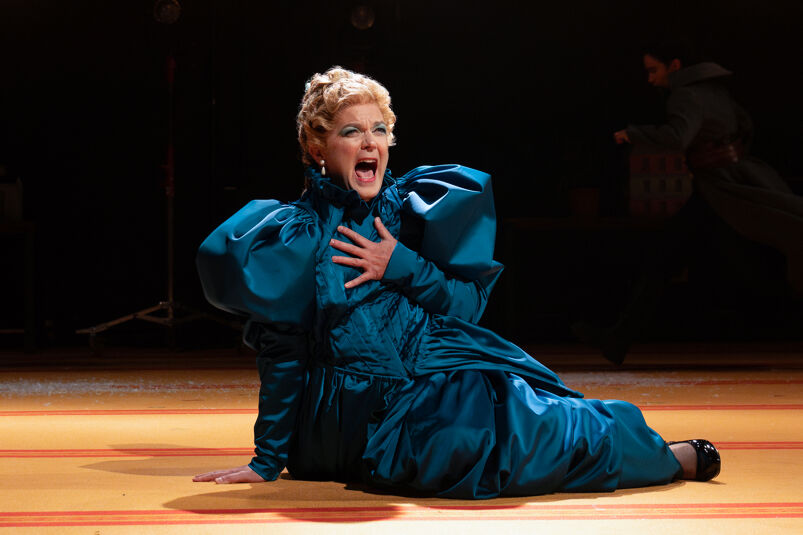
Taylor Mac is many things. Fearless comes to mind, but that’s only what the audience may see when the work finally shines under the spotlight. Relentlessly inquisitive might be a more accurate description of the multi-hyphenate artist.
A new stage adaptation of Virginia Woolf’s 1928 novel, Orlando: A Biography by Sarah Ruhl puts Mac at the center of a century-spanning tale of love, desire, and discovery. Upon the novel’s 90th anniversary in 2018, journalist Joanna Scutts described the author as making “a joyful case for the transgression of all limits on desire, curiosity, and knowledge.”
Woolf’s book was, in many ways, a love letter to Vita Sackville-West, with whom she had an affair. Mac’s performance in Signature Theatre’s Off-Broadway premiere unpacks our centuries-old fascination with love and lust: where they converge or deviate, how cultural norms impact perceived gender roles, and the fragility of intimacy.
Your dose of fabulosi-TEA
Subscribe to our newsletter for your front-row seat to all things entertainment with a sprinkle of everything else queer.
Mac is no stranger to swinging for the stars. Max recently released a documentary about the theatermaker’s extravagant production, Taylor Mac’s 24-Decade History of Popular Music, a 24-hour-long immersive theatrical experience in collaboration with designer Machine Dazzle and dozens of musicians.
Queerty caught up with Mac prior to the show’s opening to chat about the piece’s evolution and what other queer theatermakers inspire their work.
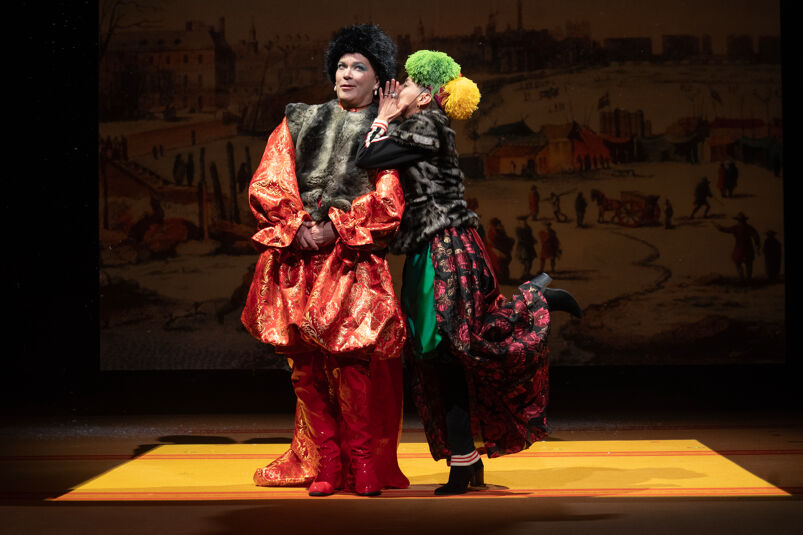
The character of Orlando time travels. If I could teleport to another decade, you’d find me …
I’d like to pick Herman Melville’s brain/heart about his love affair with Nathaniel Hawthorne, primarily because I’m writing a song cycle based on his letters to Hawthorne.
Related:
Turns out the pilgrims had a ton of gay sex
While it’s unclear from historical records whether or not there was a massive gay gang bang directly before or after the first Thanksgiving circa 1623, there were definitely plenty of twinks scattered around America at that time.
Virginia Woolf wrote in Orlando (and referenced by playwright Sara Ruhl), “I am growing up. I am losing some illusions, perhaps to acquire others.” The illusions I’d happily let go of at this point in my life are …
That consumption makes one fulfilled or even happy.
This production is an ensemble piece, with my castmates playing multiple roles (and several of Orlando’s lovers). I knew we were onto something magical in rehearsal when …
Really the first day when everyone said all the group lines completely together. It’s very rare, with a company who haven’t worked together before, that there’s an immediate understanding/connection with regard to rhythms and intention.
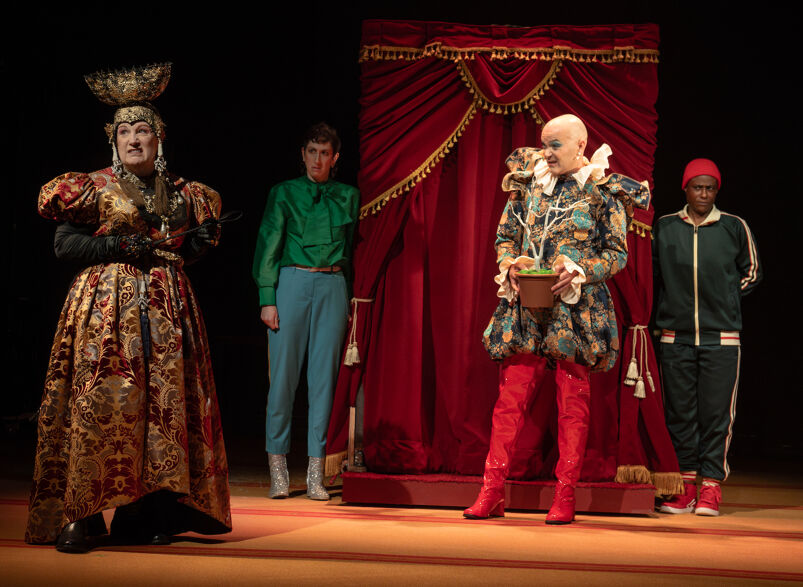
Between Orlando and A 24-Decade History of Popular Music, I must have a thing for epic storytelling. One of the greatest gifts of this approach is …
Often, when people think about the inheritance of our forebears, it’s related to inherited trauma or systems or material objects. Joy, understanding, humor, craft, and how we are curious and love are also things we inherit from the centuries. It’s nice to spend time, each night in performance, meditating on what Virginia Woolf, Vita and Orlando have given us, with regards to love. How do they exist in our bodies and ways of being?
My biggest onstage mishap happened when …
Every performance! I’ve yet to do a single show, in my life, where something hasn’t gone horribly awry. The trick is to have fun finding your way in it.
The queer theatermaker everyone should be paying attention to right now is …
Well, if Orlando shows us anything, it’s that it’s the collective body of work, over centuries, that matters more than the individual or one period of one person’s life. But… look to the gentle. The future of queerness is in the gentle expression, rather than the fierce (which is fun and useful but more a survival technique than the heart of us). Ocean Vuong and Pádraig Ó Tuama (of the podcast Poetry Unbound) aren’t theater makers, but maybe an example of what I’m leaning towards… as the nonprofits fold and the only visible option is the commercial theater’s bright lights, poetry is going to lead the way to the hidden and the next great theatrical expression of queerness.
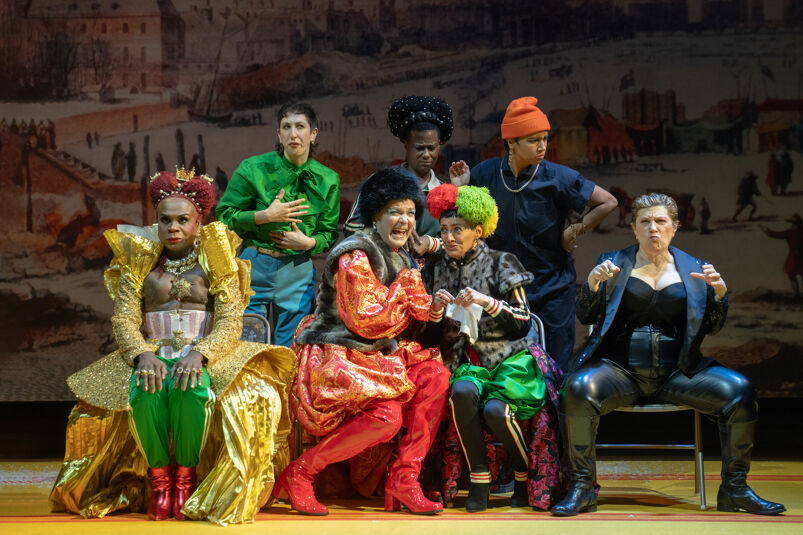
The show that changed my life the most was …
Right now I’m thinking about the Butoh dancer Ushio Amagatsu, who recently passed. I saw a work of his in 1991, which transformed my understanding of theatrical time, tension and release, and kinetics.
Before a performance, I always …
Stretch and try to remember to thank my body, whatever state it’s in, and remember that, as nerve-wracking as it can be, performing is also often a great deal of fun.
This article includes links that may result in a small affiliate share for purchased products, which helps support independent LGBTQ+ media.


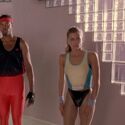

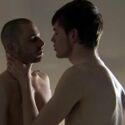

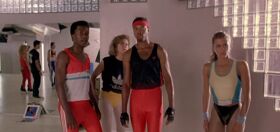


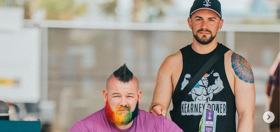
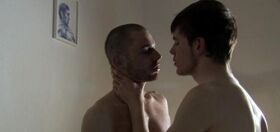
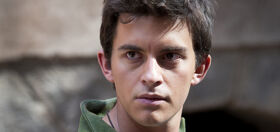

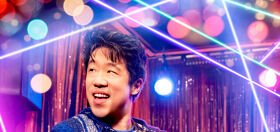






dbmcvey
Taylor Mac is such a great performer! I hope I get to see this!